Find Help
More Items From Ergsy search
-

What is hay fever?
Relevance: 100%
-
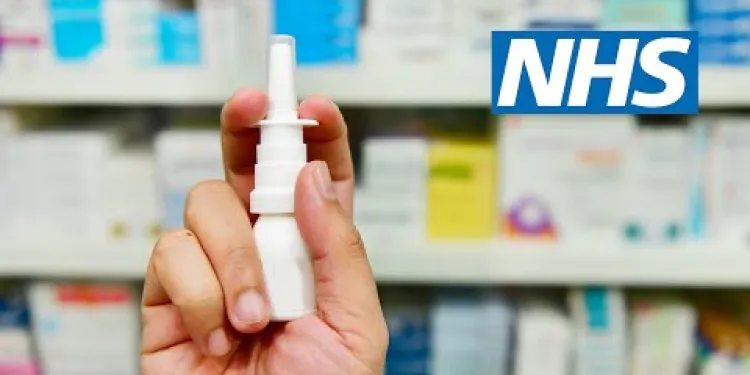
Hay fever advice | NHS
Relevance: 94%
-

Do masks help with hay fever?
Relevance: 93%
-

Can hay fever be prevented?
Relevance: 93%
-
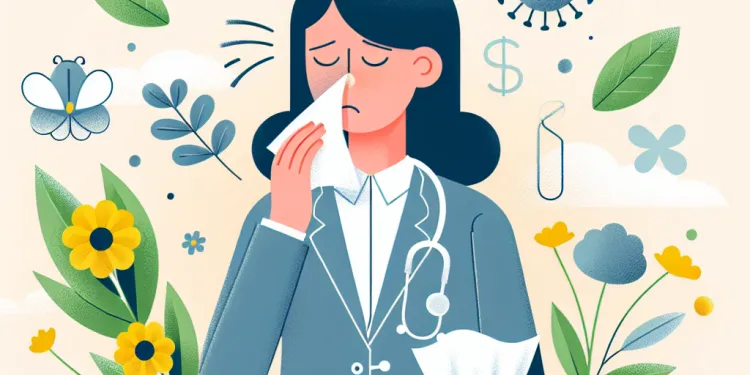
What are the common symptoms of hay fever?
Relevance: 92%
-
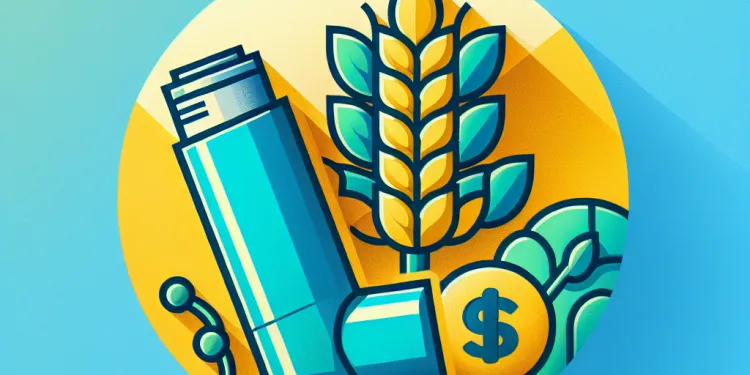
Is there a link between hay fever and asthma?
Relevance: 92%
-
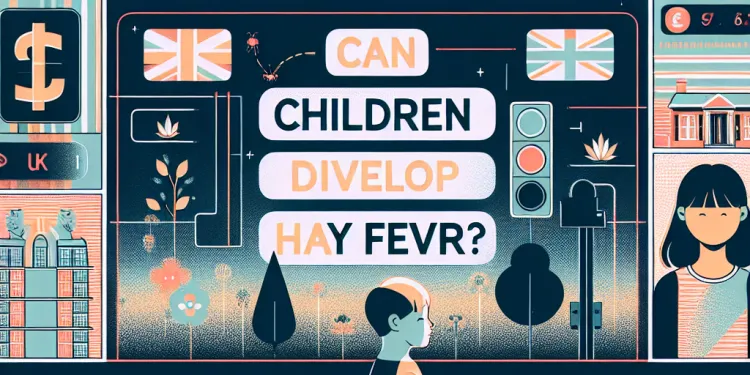
Can children develop hay fever?
Relevance: 91%
-

Can hay fever occur year-round?
Relevance: 90%
-
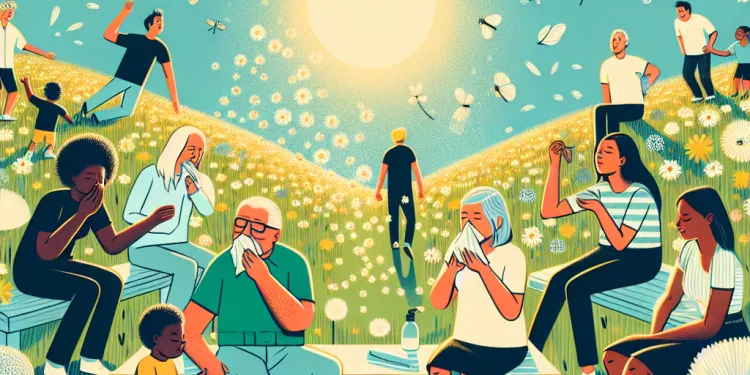
Are some people more prone to hay fever?
Relevance: 89%
-
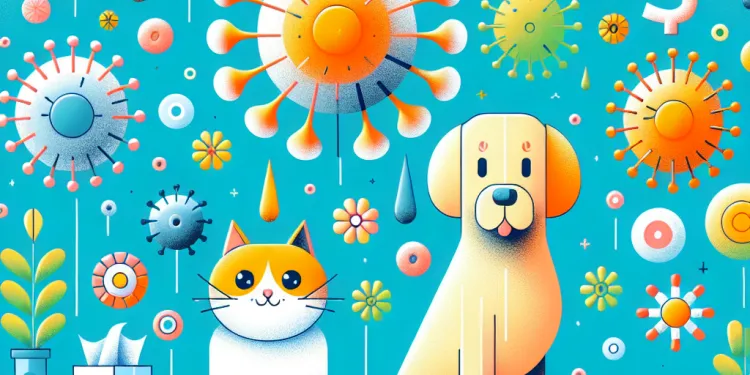
Do pets contribute to hay fever?
Relevance: 88%
-

Is hay fever more common in urban areas?
Relevance: 88%
-
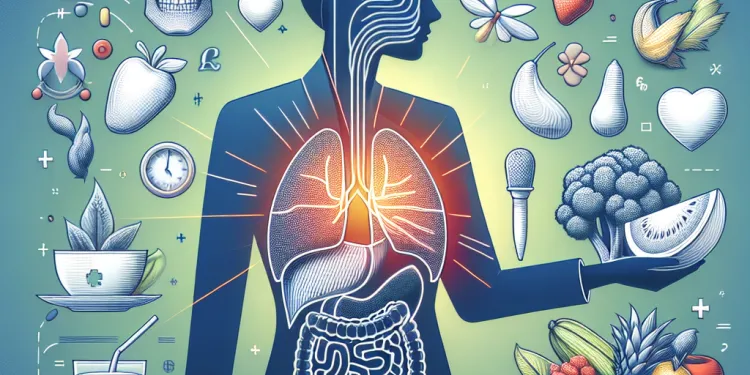
Can diet influence hay fever symptoms?
Relevance: 87%
-
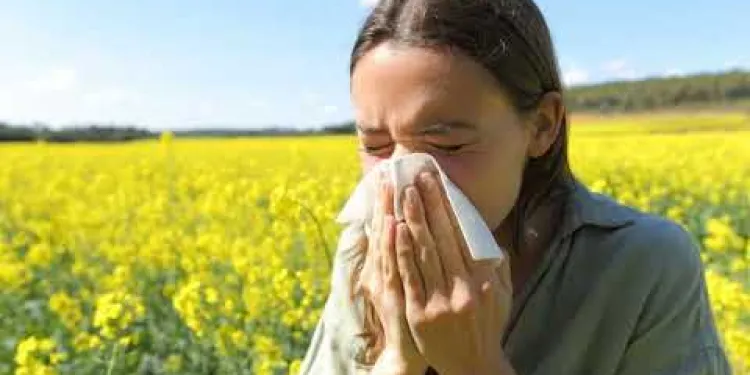
Antihistamines how they work with hay fever
Relevance: 87%
-

Can hay fever symptoms mimic other conditions?
Relevance: 86%
-
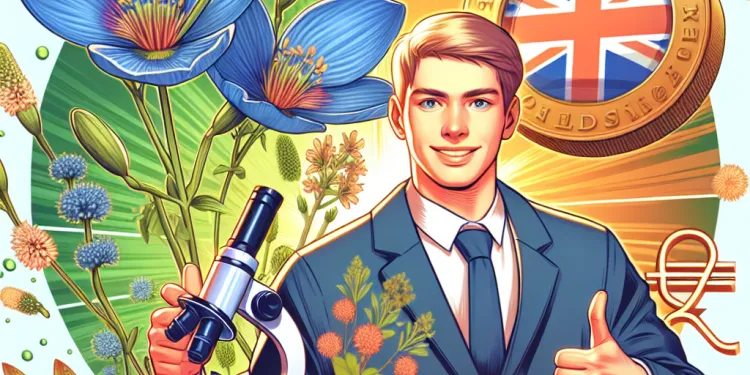
Do all plants produce pollen that causes hay fever?
Relevance: 86%
-
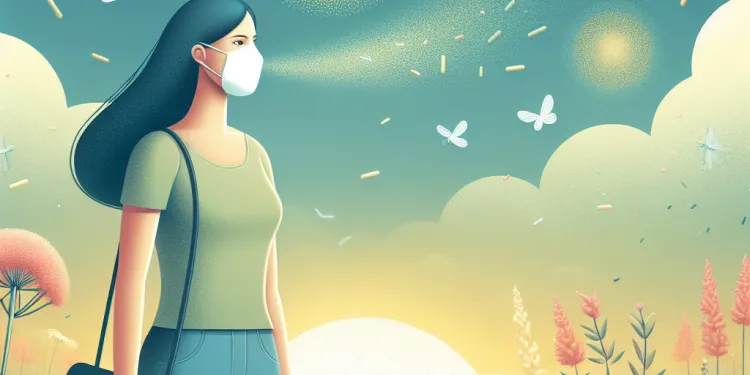
How does pollen affect people with hay fever?
Relevance: 85%
-

Why are experts warning of rising hay fever cases?
Relevance: 85%
-
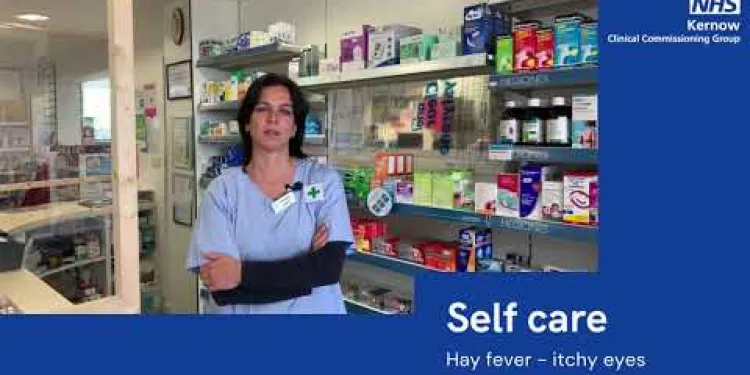
Self care - hay fever itchy eyes
Relevance: 84%
-
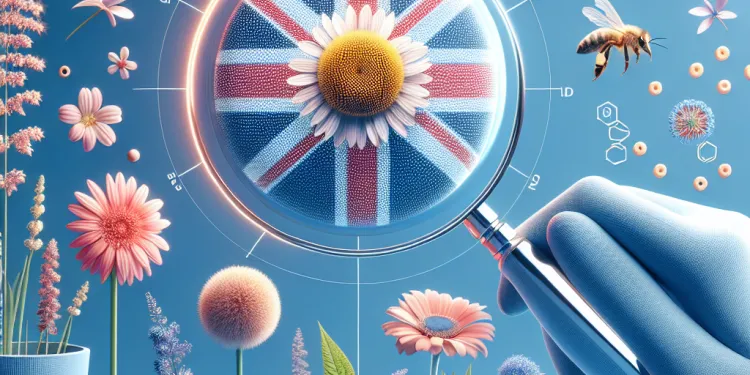
Experts Warn of Rising Hay Fever Cases as Pollen Counts Surge
Relevance: 81%
-
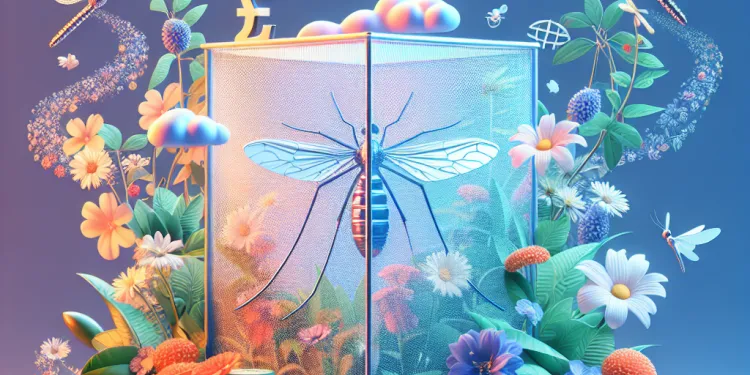
Can mosquito screens help reduce hay fever symptoms?
Relevance: 76%
-
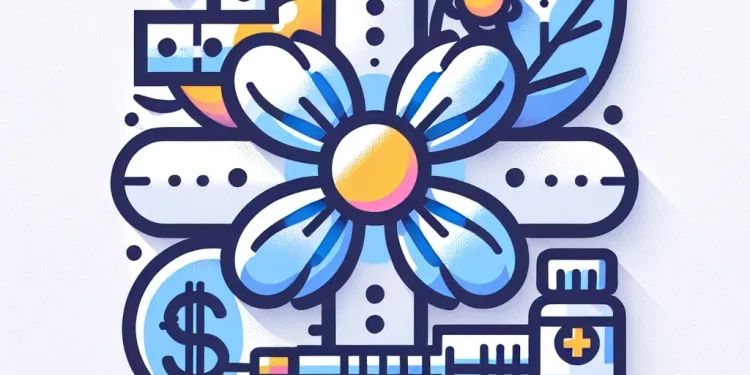
Are there any treatments for hay fever?
Relevance: 68%
-

How long does a typical hay fever season last?
Relevance: 58%
-
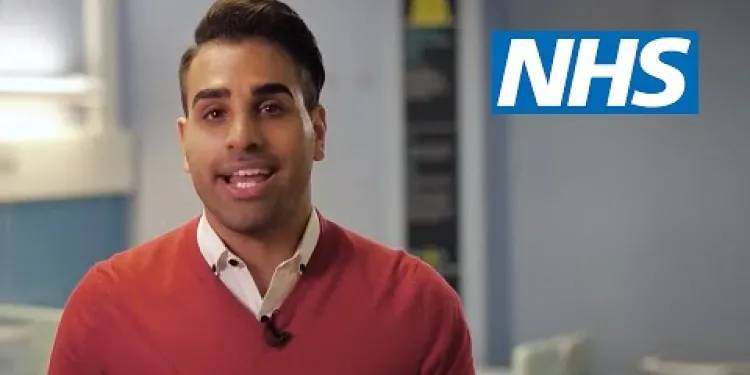
Caring for a child with fever | NHS
Relevance: 40%
-
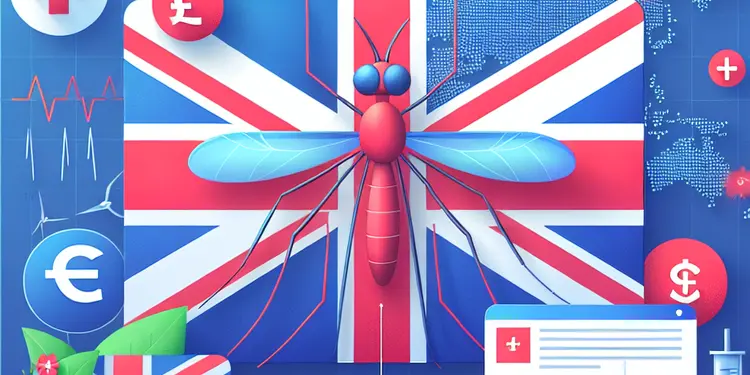
Can dengue fever be contracted in the UK?
Relevance: 39%
-
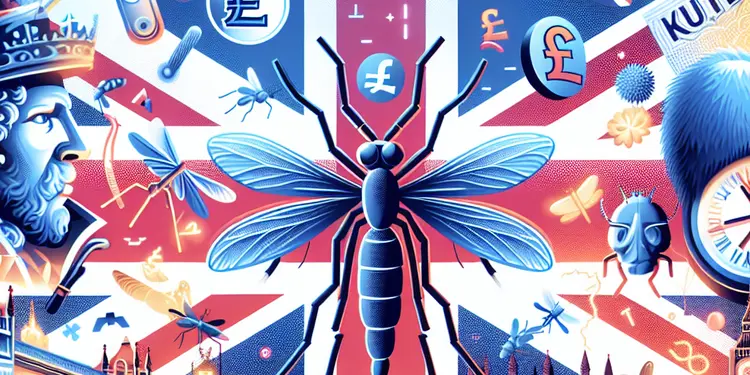
Is there a risk of yellow fever being spread by mosquitoes in the UK?
Relevance: 39%
-
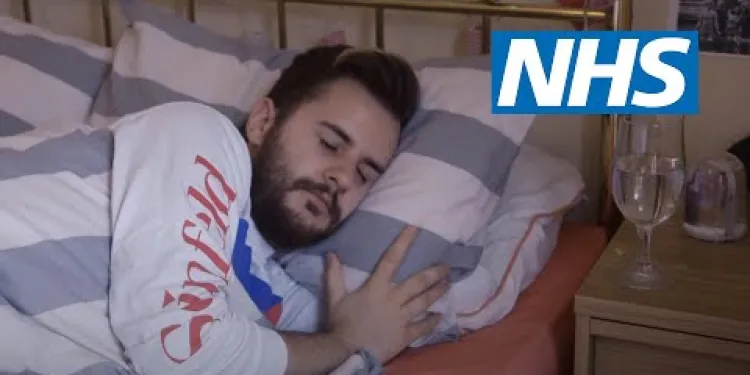
How to treat glandular fever | NHS
Relevance: 38%
-
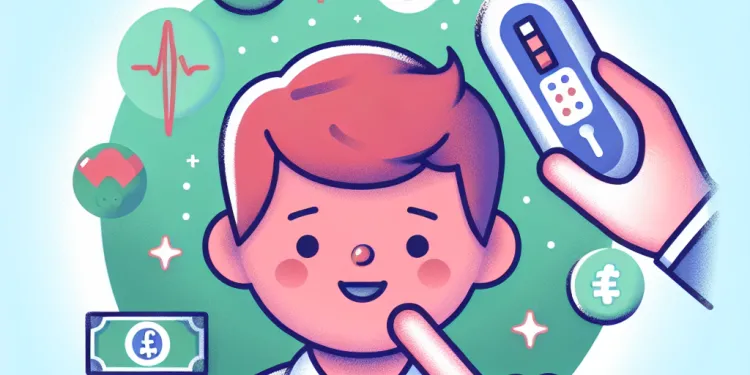
Which medication should be avoided for children with fevers?
Relevance: 37%
-

What is Dengue Fever?
Relevance: 33%
-

Can lifestyle changes help manage pain and fever during pregnancy?
Relevance: 32%
-
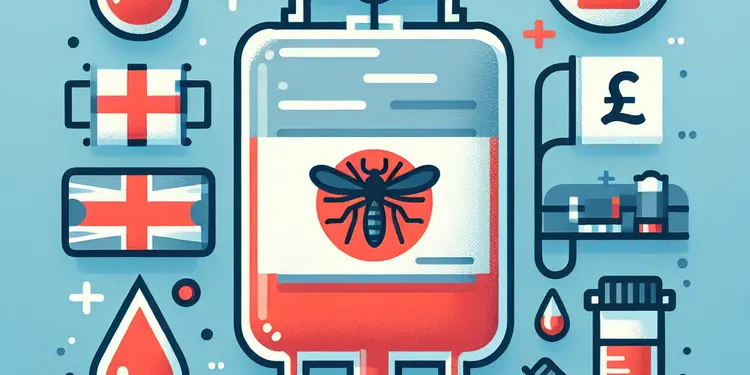
Can Dengue fever be transmitted through blood transfusions?
Relevance: 30%
-
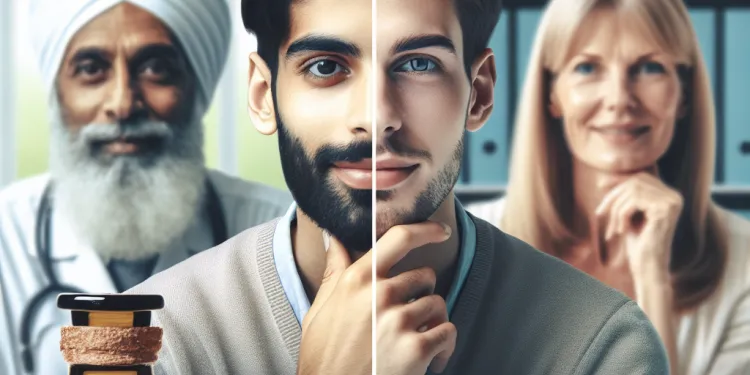
What are some common conditions treated with homeopathy?
Relevance: 18%
-
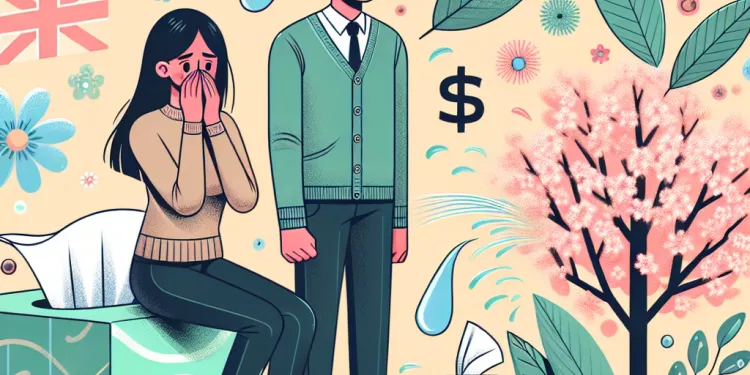
Dealing with Seasonal Allergies
Relevance: 17%
-

Are there safer alternatives to paracetamol for pregnant individuals experiencing pain or fever?
Relevance: 17%
-
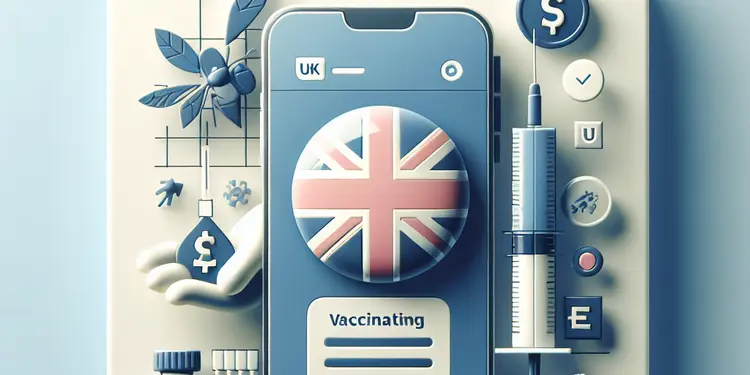
Are any vaccines available in the UK for mosquito-borne diseases?
Relevance: 17%
-

Who is at risk of developing eczema?
Relevance: 17%
-

How does climate change affect pollen levels?
Relevance: 16%
-
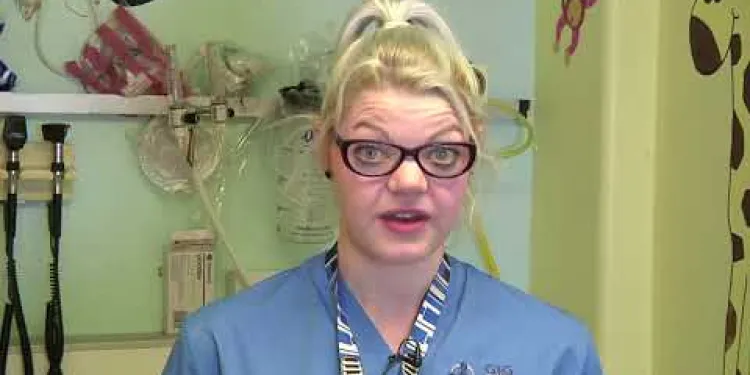
Advice if your child has... A High temperature
Relevance: 15%
-
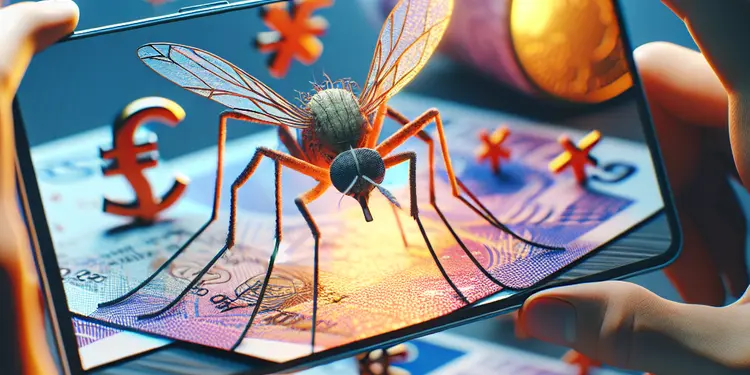
What symptoms should I watch for if I suspect a mosquito-borne disease?
Relevance: 14%
-
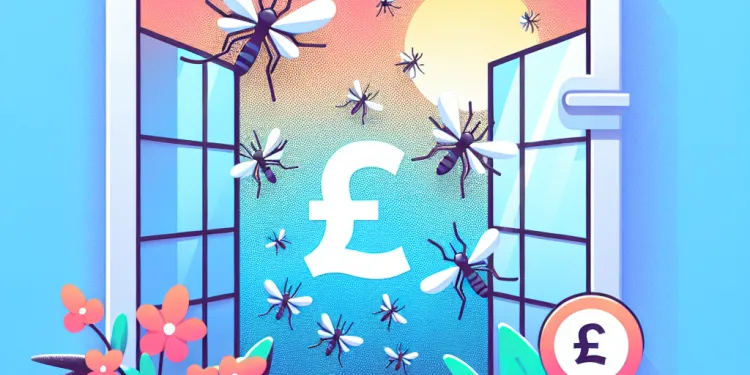
Are Mosquito window screens effective?
Relevance: 14%
-
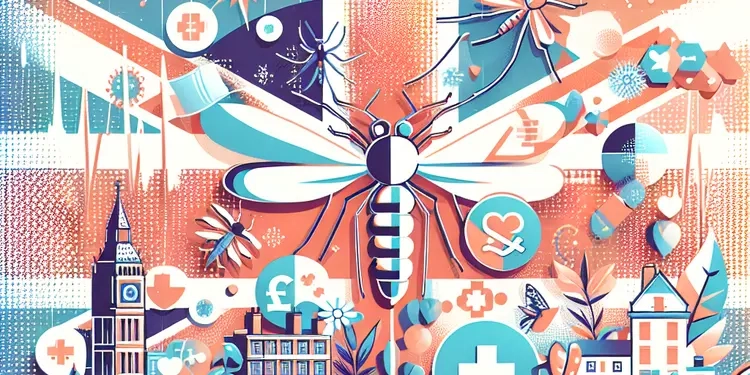
What diseases are spread by mosquitos in the UK in 2025?
Relevance: 14%
Hay Fever Advice | NHS
What is Hay Fever?
Hay fever, also known as allergic rhinitis, is a common allergic condition caused by an allergic response to airborne substances, such as pollen. It affects the respiratory system, causing symptoms like sneezing, itchy eyes, runny nose, and congestion. In the UK, hay fever is particularly prevalent during the spring and summer months when pollen levels are at their highest.
Identifying Symptoms
The symptoms of hay fever can vary from mild to severe and may include sneezing, a blocked or runny nose, red, itchy or watery eyes, itchy throat, mouth, and ears, and loss of smell. Some individuals may also experience headaches, earaches, and feelings of fatigue.
Managing and Relieving Symptoms
To manage and alleviate hay fever symptoms, consider the following advice:
- Stay Indoors: Try to stay indoors when pollen counts are high, especially early morning and late afternoon.
- Keep Windows Closed: Keeping windows and doors shut will help prevent pollen from entering your home.
- Shower and Change Clothes: After being outside, shower to wash off pollen from your skin and hair, and change into clean clothes.
- Use Sunglasses: Wearing sunglasses can protect your eyes from pollen exposure.
- Medicines: Over-the-counter antihistamines, nasal sprays, and eye drops can be effective in treating symptoms. Consult your GP about the best options for you.
Seeking Medical Help
If your symptoms are severe or do not improve with over-the-counter medications, it is advised to seek help from your GP. They may recommend prescription medications or refer you to an allergy specialist for further treatment.
Preventative Measures
Preventative measures can also be taken to reduce the severity of hay fever symptoms:
- Avoid going out during peak pollen times.
- Use a pollen filter in your car and vacuum cleaner.
- Avoid drying clothes outdoors to prevent pollen from clinging to them.
- Maintain a clean, dust-free environment at home.
Conclusion
Hay fever can significantly impact daily life, but with the right management and preventative measures, it is possible to alleviate symptoms and enjoy the warmer months. Always consult healthcare professionals for tailored advice and treatment options.
Hay Fever Advice | NHS
What is Hay Fever?
Hay fever is when your body reacts to things like pollen in the air. It can make you sneeze and give you itchy eyes, a runny nose, and make it hard to breathe. This happens most in spring and summer when pollen is high.
Identifying Symptoms
If you have hay fever, you might sneeze, get a blocked or runny nose, have red or itchy eyes, an itchy throat, and lose your sense of smell. It can also give you headaches and make you feel tired.
Managing and Relieving Symptoms
Here are some things you can do to feel better:
- Stay Indoors: Stay inside when there's a lot of pollen, usually in the morning and late afternoon.
- Keep Windows Closed: Keep windows and doors shut to stop pollen from getting in.
- Shower and Change Clothes: After being outside, take a shower and change clothes to wash off the pollen.
- Use Sunglasses: Wear sunglasses to keep pollen out of your eyes.
- Medicines: You can buy medicines that help with hay fever like antihistamines. Ask your doctor which is best for you.
Seeking Medical Help
If your symptoms are very bad or don't get better with regular medicines, visit your doctor. They can give you stronger medicines or send you to a specialist.
Preventative Measures
You can also do some things to stop hay fever from getting worse:
- Try not to go outside when there is a lot of pollen.
- Use a special filter in your car and vacuum.
- Don't dry clothes outside to keep pollen off them.
- Keep your home clean and free of dust.
Conclusion
Hay fever can make life hard, but you can feel better by doing the right things. Always talk to a doctor for advice and help.
Frequently Asked Questions
What is hay fever?
Hay fever is an allergic reaction to pollen, typically when it comes into contact with your mouth, nose, eyes, and throat.
What are the common symptoms of hay fever?
Common symptoms include sneezing, a runny or blocked nose, itchy eyes, mouth or skin, and a cough.
When is hay fever season in the UK?
Hay fever season in the UK typically runs from late March to September, with peak times differing depending on the type of pollen.
How can I reduce my hay fever symptoms?
You can reduce symptoms by staying indoors as much as possible, keeping windows and doors shut, using pollen filters in your car, and regularly vacuuming and damp dusting your home.
Can I take medication for hay fever?
Yes, over-the-counter medications such as antihistamines, nasal corticosteroids, and eye drops can help manage symptoms. Speak to your pharmacist or GP for advice.
Are there any natural remedies for hay fever?
Some people find relief from natural remedies such as local honey, herbal teas, and saline nasal rinses, but effectiveness can vary from person to person.
How do I know if I have hay fever or a common cold?
Hay fever typically causes persistent sneezing, itchy eyes, and a runny nose without a fever. Cold symptoms usually include a sore throat, cough, and sometimes a fever.
Can children get hay fever?
Yes, children can get hay fever, and symptoms are similar to those experienced by adults. Consult your GP for advice on suitable treatments for children.
Can hay fever develop later in life?
Yes, hay fever can develop at any age, even if you have never experienced symptoms before.
Can I prevent hay fever?
While you can't completely prevent hay fever, you can reduce exposure to pollen by staying indoors during high pollen counts, wearing wraparound sunglasses, and changing clothes after being outside.
What foods should I avoid if I have hay fever?
Some people with hay fever may experience oral allergy syndrome where certain fruits, vegetables, and nuts can exacerbate symptoms. Common triggers include apples, tomatoes, and nuts.
Is hay fever linked to asthma?
Hay fever can increase the risk of asthma attacks or worsen asthma symptoms. It's important to manage both conditions effectively.
What is the pollen count and how can I check it?
The pollen count is a measure of the amount of pollen in the air. You can check daily pollen forecasts via the Met Office website or through weather apps.
Does wearing a face mask help with hay fever?
Wearing a mask can help reduce the amount of pollen you breathe in, potentially reducing symptoms.
When should I see a doctor for hay fever?
You should see a doctor if your symptoms are severe, persistent, or not relieved by over-the-counter treatments. Your GP can offer additional treatments or refer you to a specialist.
What is hay fever?
Hay fever is when you sneeze a lot, have a runny nose, or itchy eyes. It happens because your body does not like things like pollen from plants. It often happens in spring or summer when flowers bloom.
To feel better, you can:
- Stay indoors when pollen is high.
- Wear sunglasses to protect your eyes.
- Use tissues to wipe your nose.
- Ask a grown-up about special medicine.
Hay fever makes you sneeze and your eyes itchy. It happens when tiny pollen bits get into your mouth, nose, eyes, and throat.
What are the signs of hay fever?
Hay fever can make you feel unwell. Here are some signs to look for:
- You sneeze a lot.
- Your nose is runny or blocked.
- Your eyes feel itchy or watery.
- Your throat feels scratchy.
If you have these signs, you can try:
- Telling a grown-up so they can help.
- Using tissues to wipe your nose and eyes.
- Staying inside when there's a lot of pollen outside.
- Asking a doctor or pharmacist about medicine to feel better.
Common signs are sneezing, a runny or stuffy nose, itchy eyes, itchy mouth, itchy skin, and a cough.
When do people have hay fever in the UK?
Hay fever usually happens in the spring and summer. This is because plants and flowers make pollen during these times. Pollen can make people sneeze or have itchy eyes. In the UK, hay fever can start as early as March and go on until September.
If you get hay fever, you can:
- Keep windows closed to stop pollen coming inside.
- Wear sunglasses outside to protect your eyes.
- Wash your face and hands after being outside.
These tips can help you feel better if you have hay fever.
In the UK, hay fever season is from the end of March to September. The worst times can be different because of different types of pollen.
Here are some tips to help during hay fever season: - **Wear sunglasses:** This can keep pollen out of your eyes. - **Keep windows closed:** This stops pollen from coming into your home. - **Use tissues:** Carry them with you to wipe your nose and eyes. - **Wash hands and face:** Do this often to get rid of pollen. - **Take medicine if needed:** Your doctor or chemist can give you medicine to help with hay fever.How can I make my hay fever better?
Hay fever makes you sneeze and have a runny nose. Here are some easy ways to feel better: - **Stay inside**: Try to stay indoors on days when there is a lot of pollen in the air, especially in the morning. - **Shut windows**: Keep windows closed at home and in the car. - **Wear sunglasses**: This helps to keep pollen out of your eyes. - **Wash often**: Wash your face and hands often to get rid of pollen. - **Change clothes**: When you get home, change your clothes to avoid bringing pollen inside. Helpful tools: - **Nasal sprays**: These can help clear your nose. - **Antihistamines**: These are medicines that can stop sneezing and itching. Talk to an adult or a doctor if you need more help.You can feel better by staying inside as much as you can. Keep windows and doors closed. Use special pollen filters in your car. Regularly vacuum and wipe dust in your home with a damp cloth.
Can I take medicine for hay fever?
Yes, you can buy some medicines from a shop that can help. These include tablets for allergies, nose sprays, and eye drops. Ask a pharmacist or a doctor for advice. They can help you choose the right one.
Can nature help with hay fever?
Hay fever makes you sneeze and feel itchy. Here are some simple ideas from nature that might help:
- Eat Honey: Try eating local honey. Some people say it helps with sneezes.
- Use Herbs: Herbs like nettle or ginger tea might help you feel better.
- Wash Up: Wash your face and hands after being outside. It helps remove pollen.
- Stay Indoors: Stay inside when there is lots of pollen outside, like on windy days.
To learn more, you can ask a grown-up or talk to a doctor.
Some people feel better with natural things like local honey, herbal teas, and washing their nose with salt water. But, these things do not work for everyone.
Some people might find apps or pictures helpful to understand better.
How can I tell if I have hay fever or a cold?
It can be tricky to know if you have hay fever or a cold. Here are some simple tips to help you figure it out:
- Time of year: Hay fever happens more in the spring and summer. Colds can happen any time.
- How long it lasts: A cold usually lasts a week or two. Hay fever can last longer.
- Common signs: Both can make you sneeze and have a runny nose. But with hay fever, your eyes might be itchy and watery, too.
If you are not sure, you can:
- Ask a doctor.
- Try taking allergy medicine. If it helps, you might have hay fever.
Remember, it is okay to ask for help if you need it. It is always good to talk to someone, like a doctor, if you are not sure.
Hay fever makes you sneeze a lot. Your eyes might itch, and your nose may run. You usually do not get a fever with hay fever.
A cold can make your throat hurt, cause you to cough, and you might get a fever sometimes.
Try using tissues to keep your nose clean. Drinking warm drinks can help your throat feel better. If your eyes are itchy, a cool washcloth can feel nice. If you feel really unwell, ask an adult to help you feel better.
Can kids have hay fever?
Yes, kids can get hay fever. Hay fever is when you sneeze and have an itchy nose because of pollen from flowers and trees.
Here are some ways to help:
- Use tissues to blow your nose.
- Stay indoors on windy days.
- Ask a grown-up to close windows to keep pollen out.
- Wash your face and hands after playing outside.
Yes, kids can get hay fever, just like grown-ups do. If you think your child has hay fever, talk to your doctor. They can tell you the best way to help your child feel better.
Can you get hay fever when you are older?
Yes, you can start having hay fever when you are older. Hay fever is when things like pollen make you sneeze or feel itchy. It does not only start when you are a child. It can start when you are an adult too.
If you think you have hay fever, you can:
- Talk to a nurse or a doctor.
- Use tissues to cover your nose when you sneeze.
- Stay indoors on days when there is a lot of pollen.
These ideas can help you feel better if you have hay fever.
Yes, you can get hay fever at any age. This can happen even if you never had hay fever before.
How can I stop getting hay fever?
Here are some ways to help avoid hay fever:
- Stay inside when there is a lot of pollen outside.
- Keep windows and doors closed to stop pollen coming in.
- Wear sunglasses to protect your eyes from pollen.
- Wash your hands and face after being outside.
- Use tissues to catch sneezes and throw them away.
These tips can help make you feel better if you have hay fever.
You cannot stop hay fever completely. But you can help yourself feel better. Stay inside when plants make a lot of pollen. Wear big sunglasses to keep pollen out of your eyes. Change your clothes when you come indoors.
What foods should I not eat if I have hay fever?
If you have hay fever, there are some foods you might want to avoid. Some foods can make hay fever worse. Here are some tips to help you:
- Try not to eat fruits like apples and peaches if they make you sneeze or itch.
- Avoid eating nuts if they make your mouth feel funny.
- If dairy makes your nose run, try less milk and cheese.
When trying new foods, notice if they make your hay fever worse. Talk to someone, like a doctor, if you need help figuring out which foods to avoid.
Using a calendar can help you track how different foods make you feel. This can make it easier to remember what to eat or what not to eat.
Some people with hay fever can have a problem called oral allergy syndrome. This means some fruits, veggies, and nuts can make their symptoms worse. Common foods that can cause this are apples, tomatoes, and nuts.
Here are some tips to help:
- Try to avoid these foods if they make you feel unwell.
- If you’re unsure, talk to a doctor or nurse.
- Use picture charts or apps to track which foods make you feel better or worse.
Do hay fever and asthma have a connection?
Hay fever can make asthma attacks happen more or make asthma worse. It's important to look after both hay fever and asthma well.
What is the pollen count and how can I check it?
Pollen is a powder from plants. It can make some people sneeze or feel unwell.
The pollen count tells us how much pollen is in the air.
You can find out the pollen count by checking the weather on TV, the radio, or the internet.
Ask a grown-up for help if you need it.
You can also use a phone app to check the pollen count. Ask someone to help you set it up.
Pollen count tells us how much pollen is in the air. You can see how much pollen there is each day on the Met Office website or on weather apps.
Can wearing a face mask help with hay fever?
Hay fever makes you sneeze and gives you itchy eyes.
Wearing a face mask can help! It stops pollen from getting into your nose and mouth.
Try using a mask when you go outside. It might make you feel better.
You can ask a friend or family to help you put on the mask if needed.
Wearing a mask can help you breathe in less pollen. This can make your symptoms not as bad.
When should I see a doctor for hay fever?
Hay fever is when your body reacts to pollen with a runny nose, sneezing, or itchy eyes. Here is when you should see a doctor:
- If your symptoms are very bad and won't go away.
- If you take allergy medicine, but it doesn't help.
- If you have trouble breathing.
To feel better, you can:
- Stay indoors when there is a lot of pollen outside.
- Wear sunglasses to keep pollen out of your eyes.
- Wash your face and hands to remove pollen.
If you need help, ask a grown-up to go with you to see the doctor.
Go to the doctor if you feel very sick, if your symptoms don’t go away, or if medicine from the store doesn't help you feel better. Your doctor can give you more medicine or send you to see another doctor who knows more about your problem.
Useful Links
This website offers general information and is not a substitute for professional advice.
Always seek guidance from qualified professionals.
If you have any medical concerns or need urgent help, contact a healthcare professional or emergency services immediately.
Some of this content was generated with AI assistance. We’ve done our best to keep it accurate, helpful, and human-friendly.
- Ergsy carfully checks the information in the videos we provide here.
- Videos shown by Youtube after a video has completed, have NOT been reviewed by ERGSY.
- To view, click the arrow in centre of video.
- Most of the videos you find here will have subtitles and/or closed captions available.
- You may need to turn these on, and choose your preferred language.
- Go to the video you'd like to watch.
- If closed captions (CC) are available, settings will be visible on the bottom right of the video player.
- To turn on Captions, click settings .
- To turn off Captions, click settings again.
More Items From Ergsy search
-

What is hay fever?
Relevance: 100%
-

Hay fever advice | NHS
Relevance: 94%
-

Do masks help with hay fever?
Relevance: 93%
-

Can hay fever be prevented?
Relevance: 93%
-

What are the common symptoms of hay fever?
Relevance: 92%
-

Is there a link between hay fever and asthma?
Relevance: 92%
-

Can children develop hay fever?
Relevance: 91%
-

Can hay fever occur year-round?
Relevance: 90%
-

Are some people more prone to hay fever?
Relevance: 89%
-

Do pets contribute to hay fever?
Relevance: 88%
-

Is hay fever more common in urban areas?
Relevance: 88%
-

Can diet influence hay fever symptoms?
Relevance: 87%
-

Antihistamines how they work with hay fever
Relevance: 87%
-

Can hay fever symptoms mimic other conditions?
Relevance: 86%
-

Do all plants produce pollen that causes hay fever?
Relevance: 86%
-

How does pollen affect people with hay fever?
Relevance: 85%
-

Why are experts warning of rising hay fever cases?
Relevance: 85%
-

Self care - hay fever itchy eyes
Relevance: 84%
-

Experts Warn of Rising Hay Fever Cases as Pollen Counts Surge
Relevance: 81%
-

Can mosquito screens help reduce hay fever symptoms?
Relevance: 76%
-

Are there any treatments for hay fever?
Relevance: 68%
-

How long does a typical hay fever season last?
Relevance: 58%
-

Caring for a child with fever | NHS
Relevance: 40%
-

Can dengue fever be contracted in the UK?
Relevance: 39%
-

Is there a risk of yellow fever being spread by mosquitoes in the UK?
Relevance: 39%
-

How to treat glandular fever | NHS
Relevance: 38%
-

Which medication should be avoided for children with fevers?
Relevance: 37%
-

What is Dengue Fever?
Relevance: 33%
-

Can lifestyle changes help manage pain and fever during pregnancy?
Relevance: 32%
-

Can Dengue fever be transmitted through blood transfusions?
Relevance: 30%
-

What are some common conditions treated with homeopathy?
Relevance: 18%
-

Dealing with Seasonal Allergies
Relevance: 17%
-

Are there safer alternatives to paracetamol for pregnant individuals experiencing pain or fever?
Relevance: 17%
-

Are any vaccines available in the UK for mosquito-borne diseases?
Relevance: 17%
-

Who is at risk of developing eczema?
Relevance: 17%
-

How does climate change affect pollen levels?
Relevance: 16%
-

Advice if your child has... A High temperature
Relevance: 15%
-

What symptoms should I watch for if I suspect a mosquito-borne disease?
Relevance: 14%
-

Are Mosquito window screens effective?
Relevance: 14%
-

What diseases are spread by mosquitos in the UK in 2025?
Relevance: 14%


